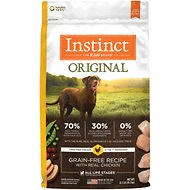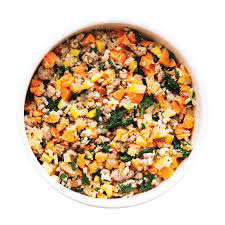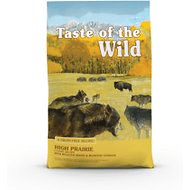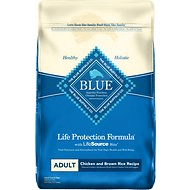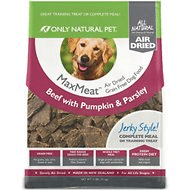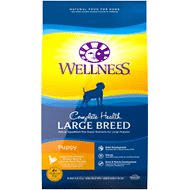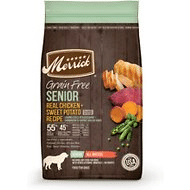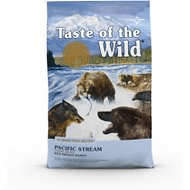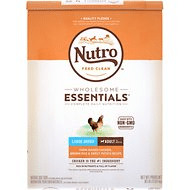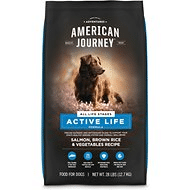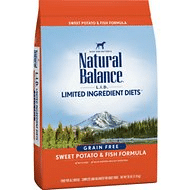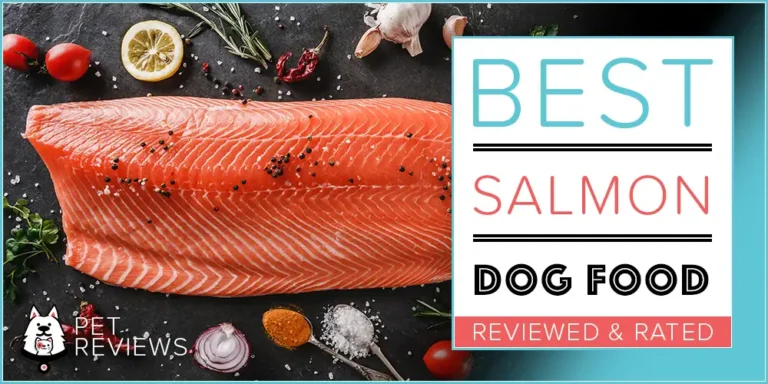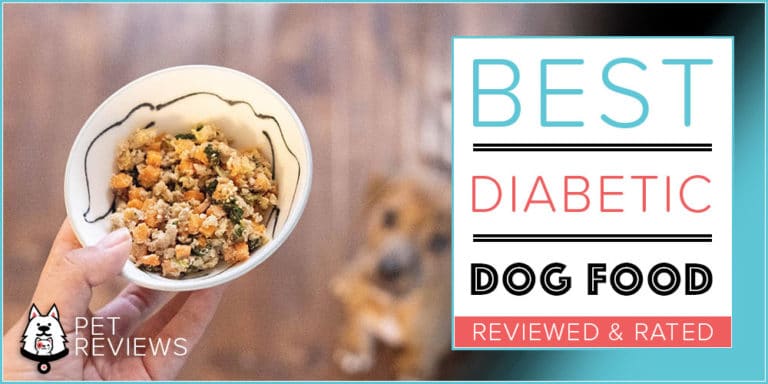11 Best Dog Foods for German Shorthaired Pointers in 2024
Quick Guide
- What is the Best Dog Food for a German Shorthaired Pointer?
- 5 Key Nutritional Needs of a German Shorthaired Pointer Diet
- 6 Special Dietary and Nutritional Considerations of German Shorthaired Pointers
- German Shorthaired Pointer Feeding Schedule
- Overall Best Dog Food for German Shorthaired Pointers
- 10 More Top-Rated Dog Foods for German Shorthaired Pointers
- NomNomNow Chicken Chow Recipe
- Taste of the Wild High Prairie Grain-Free Dry Dog Recipe
- Blue Buffalo Life Protection Formula
- Only Natural Pet MaxMeat Air-Dried Beef Grain-Free Dog Food
- Wellness Complete Health Puppy Food
- Merrick Grain Free Senior Chicken Dog Food
- Taste of the Wild Pacific Stream Grain-Free Dog Food
- Nutro Wholesome Essentials Large Breed Formula
- American Journey Salmon & Brown Rice Recipe
- Natural Balance Limited Ingredient Diet Formula
- Our 2024 German Shorthaired Pointer Feeding Guide
- Frequently Asked Questions
- Conclusion
While plenty of people still use Pointers as hunting dogs, they’ve transitioned into friendly family dogs as well. Most Pointers are just as happy to spend all day playing fetch as they are traipsing through the woods. Even with small children, many Pointers are gentle and don’t respond negatively to the unpredictable behavior of a little kid or toddler. In fact, with enough bonding, a Pointer may even take on the role of a protector.
Regardless of what activity they’re doing, Pointers have a high energy level, and they’ll require adequate fuel to get them through the day. As an owner, picking out the best dog food for German Shorthaired Pointers can be tricky—you want a blend that has the right nutrients for your pup.
Luckily, if you aren’t sure where to start, we’ve put together a complete buyer’s guide as well as 11 recommendations you might want to check out.
What is the Best Dog Food for a German Shorthaired Pointer?
- Our Top Pick: Instinct Original Grain-Free Recipe
- Super Premium: NomNomNow Chicken Chow Recipe
- Most Popular: Taste of the Wild High Prairie Grain-Free Dry Dog Recipe
- Best Value: Blue Buffalo Life Protection Formula
- Pea Free: Only Natural Pet MaxMeat Air-Dried Beef Grain-Free Dog Food
- Best for Puppies: Wellness Complete Health Puppy Food
- Best for Seniors: Merrick Grain Free Senior Chicken Dog Food
- Taste of the Wild Pacific Stream Grain-Free Dog Food
- Nutro Wholesome Essentials Large Breed Formula
- American Journey Salmon & Brown Rice Recipe
- Natural Balance Limited Ingredient Diet Formula
5 Key Nutritional Needs of a German Shorthaired Pointer Diet
Compared to some other breeds, GSPs don’t have the strongest stomachs. Your pup may be sensitive to specific ingredients, so you’ll want to keep track of what they have a bad reaction to. Some of the most common allergens include beef, wheat, and dairy. However, despite what food sensitivities or allergies your Pointer may have, you’ll still want to make sure they get plenty of these key nutrients:
Healthy Fats
If you want your GSP to have the energy to take on a full-day hunting trip, you’ll want to make sure he has plenty of fat in his diet. Your dog will get twice the energy from fat that he gets from protein or carbohydrates, so you don’t want to leave this essential nutrient out.
Besides providing energy, fats can also help your pup absorb certain vitamins, produce specific hormones, or even aid in building cells. Recipes with chicken or fish might contain more of the healthy fats that your GSP needs. If you see terms like “omega-3 fatty acids,” it’s a good indicator that the recipe is rich in those healthy fats.
Protein
Protein is another nutrient you don’t want to skimp on, especially if your German Shorthaired Pointer is still growing. As the “building blocks” for your pup’s cells, protein is crucial for your GSP’s normal growth and development.
Luckily, most dry dog food is chock-full of protein, especially recipes that use meat as the main ingredient. Animal proteins include chicken, beef, fish, and even novel proteins like buffalo or duck. Keep in mind that you always want protein to be the very top (or near the top) on your list of ingredients.
Carbs
While they don’t provide as much energy as fats do, carbohydrates are another vital nutrient. It’s worth noting that carbohydrates are a broad category, and they include essential sugars like glucose, which supplies energy to the brain and organs. Fibers, another carb, can help promote a healthy gut.
Since GSPs are already prone to sensitive stomachs, it’s even more important for your dog to have a good source of fiber in their diet. If you’re looking for more carbohydrates, try searching for recipes with grains or starch. A recipe might claim to be “grain-free,” but that doesn’t mean it’s lacking in the carb department. Rather, the brand has just replaced the grains with other beneficial carbs, such as peas or legumes.
Vitamins
Just like humans, Pointers need their fair share of vitamins too. Since a lot of vitamins can’t be made organically, your dog must get them from his diet. The good news is that most recipes contain a balanced amount of vitamins, so you won’t need to give your dog a supplement unless a veterinarian recommends it.
Try searching for recipes that use ingredients rich in B12, a crucial vitamin for your pup’s brain and nervous system development.
Minerals
Similar to vitamins, your GSP won’t be able to make minerals on his own and will need to rely on his diet. Most minerals are important for maintaining your Pointer’s bones and teeth, especially as they grow as puppies and age as seniors.
For instance, calcium is crucial for maintaining healthy bones in your Pointer, and you’ll typically find a lot of it in ingredients such as dairy products or certain vegetables.
6 Special Dietary and Nutritional Considerations of German Shorthaired Pointers
While every dog is different, German Shorthaired Pointers, as a breed, are prone to specific health issues. Understanding what they are and how your dog’s diet affects their health can make all the difference:
Bloat (Gastric Dilatation and Volvulus)
Speaking of digestion, you’ll probably want to be on the lookout for one serious condition, Bloat, also known as gastric dilatation and volvulus. Bloat can be a little more common in dogs that have narrow, deep chests, like the GPS.
With Bloat, the stomach fills with gas and twists until it cuts off your pup’s blood supply. If you don’t treat it, Bloat can be fatal, so you’ll want to be on the lookout for symptoms. If your dog begins dry heaving, has an enlarged abdomen, or begins acting restless, you’ll want to get your dog immediate medical care. It’s worth noting that scientists are still figuring out a direct cause for Bloat.
Eye Issues
It’s not uncommon for German Shorthaired Pointers to inherit eye issues, some of which may cause blindness. Cataracts, for instance, are common among senior Pointers and could require surgery if they’re severe enough.
If your German Shorthaired Pointer’s eyes look a little cloudy, it could be an indicator that they’ve got a cataract problem. While there’s no way to stop your dog from inheriting an eye problem, eating a diet that’s rich in antioxidants can help maintain your pup’s overall eye health. You’ll find plenty of antioxidants in recipes that use “superfoods,” like blueberries.
Blood Clots
Unfortunately, another health condition that German Shorthaired Pointers tend to inherit is Von Willebrand’s Disease, which causes blood clotting. Sometimes, owners may not realize their dog is at-risk until they suffer a severe injury with blood loss, or need to have surgery.
If you aren’t sure whether or not your GPS has Von Willebrand’s Disease and you’d like to find out, a veterinarian can run diagnostic testing.
Joint Issues
Like a lot of other medium to large breeds, some Pointer puppies can grow too quickly, which can cause osteochondritis dissecans, or OCD. This happens when the cartilage and the bones do not attach properly, and it can sometimes require surgery. However, your puppy’s diet can play a role in preventing OCD.
You’ll want to stick to a recommended feeding schedule to make sure you don’t overfeed your pup, and you don’t want to add supplements to his diet unless your vet tells you to.
Elbow and Hip Dysplasia
Hip and elbow dysplasia is a common problem in a variety of different breeds, including the GSP. Most of the time, it occurs as your Pointer gets older and enters his “golden years.”
If you begin to notice that your GSP’s joints seem stiff, or it looks like it hurts to walk, hip dysplasia could be the culprit. Along with treatment from a vet, diets that are rich in glucosamine, as we’ve mentioned, may help maintain your GPS’ overall joint health.
Heart Disease
Unfortunately, German Shorthaired Pointers tend to be at higher risk for a variety of different heart diseases. Some of these conditions may develop later on in life, so having regular examinations with a vet can help you detect a problem early on.
While there are plenty of factors that contribute to heart disease, keeping your GSP at a healthy weight with a regular feeding schedule and plenty of activity can work to your advantage. Some amino acids that you’ll find in your pup’s food, like taurine, may also promote better heart health.
German Shorthaired Pointer Feeding Schedule
Besides figuring out what type of food to purchase for your GPS, a lot of owners struggle with how much they should be feeding their pup. If you’re stuck, the chart below should give you a good starting point:
How often and how much should I feed my German Shorthaired Pointer?
| German Shorthaired Puppy Age | Number of Meals Per Day |
| 8-12 Weeks | 4 Meals/Day |
| 3-6 Months | 3 Meals/Day |
| 12 Months+ | 1-2 Meals/Day |
Keep in mind that these are general feeding guidelines. Depending on your GPS’ activity levels and development, you may need to adjust the feeding schedule accordingly. It’s always a good idea to double-check with your vet to make sure you aren’t overfeeding (or underfeeding). Some dog food brands may also have their own feeding guidelines, so you’ll want to check the back of the bag before you start scooping it in the bowl.
Overall Best Dog Food for German Shorthaired Pointers
| Our 2024 Picks: Best German Shorthaired Pointer Dog Food | |||
Instinct Original Grain-Free Recipe
|
CHECK PRICE | ||
NomNomNow Chicken Chow Recipe
|
CHECK PRICE | ||
Taste of the Wild High Prairie Grain-Free Dry Dog Recipe
|
CHECK PRICE | ||
Blue Buffalo Life Protection Formula
|
CHECK PRICE | ||
Only Natural Pet MaxMeat Air-Dried Beef Grain-Free Dog Food
|
CHECK PRICE | ||
Wellness Complete Health Puppy Food
|
CHECK PRICE | ||
Merrick Grain Free Senior Chicken Dog Food
|
CHECK PRICE | ||
Taste of the Wild Pacific Stream Grain-Free Dog Food
|
CHECK PRICE | ||
Nutro Wholesome Essentials Large Breed Formula
|
CHECK PRICE | ||
American Journey Salmon & Brown Rice Recipe
|
CHECK PRICE | ||
Natural Balance Limited Ingredient Diet Formula
|
CHECK PRICE | ||
Now that we’ve covered some of the dietary concerns, it’s time to take a look at some of our favorite German Shorthaired Pointer dog food—including our favorite recommendation below:
Instinct Original Grain-Free Recipe
Best Overall
When it comes to identifying the “best of the best,” the Instinct Original Grain-Free Recipe hits every mark. By leaving out potatoes, grains, wheat, and corn, this food avoids common allergens and sensitivities. And, not only is it free of grains, but it also contains real cage-free chicken that’s been freeze-dried. If your GSP is a fan of raw nutrition, they probably won’t mind gobbling this recipe up.
Besides plenty of protein, you’ll also find natural probiotics, antioxidants, natural omegas inside of this recipe too. The combination of animal ingredients and healthy oils creates a balance that promotes better immune health, digestion, and skin.
10 More Top-Rated Dog Foods for German Shorthaired Pointers
Every German Shorthaired Pointer has their own tastes and preferences—which is why we’ve included ten more tasty options for you below:
NomNomNow Chicken Chow Recipe
Dry food might be healthy, but if you’re looking to take your GSP’s nutrition to the next step, you might want to consider a super-premium option like the NomNomNow Chicken Chow Recipe. Unlike a regular bag of dry or wet food, you’ll order these meals fresh from the NomNomNow service.
With this specific recipe, the Chicken Chow meals contain an abundance of real chicken, yellow squash, sweet potatoes, spinach, and fish oil. If your GSP is lacking in the healthy fats area of their diet, the abundance of fish oil in this recipe might not be a bad idea.
Another perk is that it contains plenty of moisture, so you don’t need to worry as much about whether your GSP is lapping up enough water.
Pros:
- Uses real chicken
- Contains plenty of healthy oils and moisture
- Chock-full of vitamins like B2 and B12 supplement
- Chicken is the first ingredient on the list
Cons:
- Sweet potatoes can be a common allergen or sensitivity
- Doesn’t contain as much fiber
Taste of the Wild High Prairie Grain-Free Dry Dog Recipe
It’s not difficult to see why Taste of the Wild High Prairie Grain-Free Dry Dog Food Recipe is so popular, and your Pointer will probably see it too. With proteins like buffalo and bison, the recipe avoids more common allergens for novel proteins.
While it does contain plenty of sweet potatoes and peas, this dog food is grain-free, so it should work well for GSPs that have an allergy or sensitivity to grain products. It also has essential minerals with amino acids that your pup may not be getting anywhere else in their diet.
Pros:
- Doesn’t contain grain or grain products
- Uses added vitamins and minerals
- No artificial flavors or preservatives
- Made in the USA
Cons:
- Some GSPs might not like buffalo or bison
Blue Buffalo Life Protection Formula
Just because you’re trying to find the best dry food for your pup doesn’t mean you can’t also get plenty of value—which is why we’re a fan of the Blue Buffalo Life Protection Formula. You’ll notice that the very first ingredient in this recipe is real deboned chicken, which can provide your Pointer with the protein and healthy fats he needs to stay healthy.
Speaking of ingredients, this formula is also chock-full of glucosamine and chondroitin, which can maintain your GSP’s skin and coat. The recipe also contains a blend of seven antioxidant-rich ingredients that should add plenty of nutritional value, but not take away from the taste.
Pros:
- Contains plenty of antioxidants
- Chock-full of glucosamine and chondroitin
- Uses real deboned chicken as the primary ingredient
- Doesn’t contain corn or soy
Cons:
- Not completely grain-free
Only Natural Pet MaxMeat Air-Dried Beef Grain-Free Dog Food
Does your German Shorthaired Pointer turn his nose up at most dry food? If so, he might prefer the Only Natural Pet MaxMeat Air-Dried Beef Grain-Free Dog Food. With a similar texture to beef jerky, this air-dried food gives your pup all the nutrients he needs without losing a bit of flavor.
While it’s still full of vitamins and minerals, the little beef bits are also low-carb. The healthy balance should be able to maintain your GSP, even with smaller servings (or by mixing this food into regular dry food).
Pros:
- Uses air-dried, free-range beef
- Contains plenty of vitamins, minerals, and amino acids
- You can feed this to your GSP as a meal or as a snack
- Uses a science-based formula
Cons:
- Not a good choice for Pointers that are sensitive to beef
- Only contains two pounds of beef slices
Wellness Complete Health Puppy Food
The food that you feed a GSP puppy is not the same kind of food you’d want to give to an adult dog, and the Wellness Complete Health Puppy Food demonstrates that. With tinier bites, your pup should have no trouble getting his teeth around each piece of kibble.
Along with deboned chicken, salmon, and oatmeal, this recipe also contains taurine for a healthier heart and flaxseed for a healthier coat. Keep in mind that you’ll only want to give this to your GSP during the first year of his life. Afterward, you’ll want to switch a recipe that’s specific to adult dogs.
Pros:
- May help maintain a healthier heart with taurine
- Perfect for growing GSP puppies
- Yucca Schidigera may reduce odor
- Uses real deboned chicken
Cons:
- Only suitable for puppies, not mature adult dogs
Merrick Grain Free Senior Chicken Dog Food
Along with finding food that suits the developmental needs of a puppy, you’ll also want to make sure your dog food can support the needs of an aging senior—like the Merrick Grain Free Senior Chicken Dog Food. Along with real chicken and sweet potatoes, this recipe contains “superfoods” like blueberries that are chock-full of antioxidants.
If your German Shorthaired Pointer has any grain allergies, there’s no reason to worry. This grain-free formula doesn’t contain those common allergens, nor does it use corn or soy. If you’re interested in keeping all your pup’s food from US businesses, you might be excited to know that this brand only uses locally-sourced ingredients.
Pros:
- Grain-free and soy-free
- Contains plenty of antioxidants
- No artificial flavors or preservatives
- Supports a healthy coat and skin in your GSP
Cons:
- Only suitable for seniors (not mature adults or puppies)
Taste of the Wild Pacific Stream Grain-Free Dog Food
Your German Shorthaired Pointer might not be fishing in the Pacific, but the Taste of the Wild Pacific Stream Grain-Free Dog Food can make them feel as if they are. If your pup is sensitive to chicken (or just doesn’t like it), they may be a fan of the smoked salmon and sweet potatoes that this recipe uses.
As far as antioxidants go, this formula has plenty of them. By using powerful superfoods, like blueberries and tomatoes, it can also support a healthier coat and boost your dog’s immune system. It’s worth noting that this formula is also made in a USA facility.
Pros:
- Contains essential minerals and vitamins
- Stays away from common allergens
- Full of healthy fats
- Contains powerful antioxidants from superfoods
Cons:
- Not all dogs may enjoy the taste of salmon
- Sweet potatoes can cause sensitivity in some dogs
Nutro Wholesome Essentials Large Breed Formula
For a recipe that gives your dog just the essentials, there’s no reason to look further than Nutro Wholesome Essentials Large Breed Formula. This recipe is also specifically designed for larger breeds like the GSP, who have individual development needs.
If you’re worried about your GSP’s joints, especially as they mature, you’ll probably be pleased to know that this recipe contains natural sources of glucosamine and chondroitin. Rather than wait until they get older, recipes like this one begin supporting healthy joints now.
Keep in mind that the ingredients in this formula are also non-GMO, and it’s free of soy protein, chicken by-product meal, and artificial flavors.
Pros:
- Doesn’t contain artificial preservatives or flavors
- Uses only non-GMO ingredients
- Contains glucosamine and chondroitin
- Supports healthy joints and boosts the immune system
Cons:
- Not completely grain-free
American Journey Salmon & Brown Rice Recipe
If you want something that can support your GSP as they move through every life stage, you might want to consider the American Journey Salmon & Brown Rice Recipe. By using animal protein as the first ingredient, you can count on this formula supporting your pup’s development and growth. The omega fatty acids also promote a shinier, healthier coat on your Pointer.
If you’re worried about your pup’s digestion, this dog food does contain fiber-rich grains, which may be able to help alleviate constipation. There’s also no corn, soy, or poultry by-products to make sensitivity or stomach issues flare-up.
Pros:
- Supports your pup’s life throughout every life stage
- Promotes a shinier coat
- Doesn’t contain common allergens like chicken or corn
- Full of fiber-rich grains
Cons:
- Not great for dogs that are sensitive or allergic to grains
Natural Balance Limited Ingredient Diet Formula
Does your German Shorthaired Pointer deal with a lot of food allergies and sensitivities? If so, you might want to look into a limited ingredient diet like this Natural Balance formula. Instead of relying on chicken or fish as the primary ingredient, it uses farm-raised duck. Potatoes are also added on as a source of carbohydrates.
Since an entire team of clinical veterinarians, research scientists, and animal nutritionists help create Natural Balance formulas, you don’t have to worry about it being “unhealthy” for your Pointer to digest. It’s also produced in the USA.
Pros:
- A great choice for dogs that have allergies or sensitivities
- Steers clear of common allergens
- Made in the USA
- Formulated by vets and animal nutritionists
Cons:
- Only suitable for adult dogs (not puppies or seniors)
Our 2024 German Shorthaired Pointer Feeding Guide
Still got questions about your German Shorthaired Pointer’s diet? We’ve done our best to answer some of the most frequently asked questions that owners have in our feeding guide below:
Frequently Asked Questions
Is grain-free dog food good for German Shorthaired Pointers?
If you’ve seen “grain-free” plastered on your pup’s favorite dry food, you might be curious as to whether this is really a healthy option. As it turns out, the answer can depend on what the manufacturer has replaced those grain-free ingredients with. Simply taking out the grains and replacing them with an excess of carbohydrates doesn’t equal a healthier meal. However, if the manufacturer has been careful about what vegetables they use as substitutes, grain-free dog food could be healthier for your pup. Sometimes, owners might simply buy grain-free food because their GSP has an allergy or sensitivity to something in grain products.
Do German Shorthaired Pointers have allergies?
Like any breed, your German Shorthaired Pointer is susceptible to different allergies, some of which may be diet-related. Some of the most common food allergens across the board include beef, wheat, chicken, lamb, fish, and pork. Many of these allergies are meat proteins, so you’ll want to be on the lookout for an allergic reaction after feeding your dog a new recipe with animal proteins. If you begin to notice swelling, hives, excessive itching, or vomiting, you should seek immediate care for your GSP—an allergic reaction could be the culprit.
When should I switch my German Shorthaired Pointer from puppy to adult food?
While German Shorthaired Pointers tend to be a little slower to mature than other breeds, you can generally begin making the switch from puppy chow to adult food around the one year mark. This is the time when a lot of Pointers begin hitting their adult weights, which is anywhere from 45 to 70 pounds. Depending on your dog’s individual growth rate, it could take a little longer (or shorter) to transition to adult food.
Is it okay to “free feed” my German Shorthaired Pointer?
There’s plenty of controversy surrounding “free feeding,” but most of the time, it’s not the best way to feed your German Shorthaired Pointer. Even if it’s a little more convenient for you, your Pointer may not have the control to pace himself around a bowl full of food.
A lot of Pointers end up overeating, which over time, can lead to weight-related health issues such as obesity. Unless you have a specific reason for it, it’s generally a better idea to avoid free-feeding altogether. Along with regular exercise, keeping your GSP on a feeding schedule should help manage his weight.
Does the “Breed Type” on dog food matter?
By now, you’ve probably seen a “breed type” on certain brands when you’re food shopping. The breed type lets you know whether the recipe is meant for small breeds, medium, or large breeds. Depending on the manufacturer and where you buy it from, not every recipe may include a “breed type,” but many of them do.
This extra tidbit of information is there for a reason because the nutrition balance might not be the same in every formula. For instance, dog food that’s meant for small breeds might have less protein or carbs than a bag for medium or large breeds. If you can try, it’s a good idea to look for dog food that’s specifically for a medium to large breed, like the German Shorthaired Pointer.
Conclusion
As you can see, the food shopping process is a little more complicated than picking out the first bag of dog food that catches your eye. Not only do you need to find food that’s for the right life stage, but you’ll need to be aware of the ingredients, nutritional value, and even breed type.
With German Shorthaired Pointers, it’s also worth considering common health issues, and how you can use your pup’s diet to prevent problems later on.
Luckily, if you’re at a loss in the shopping department and aren’t sure where to begin, you can always check out one of the top-rated recommendations above.




